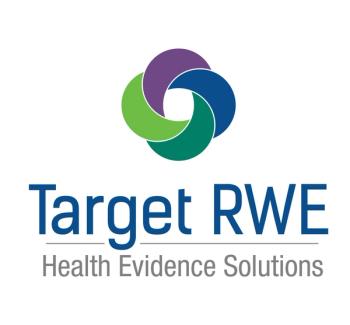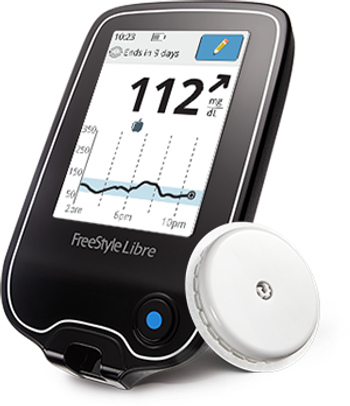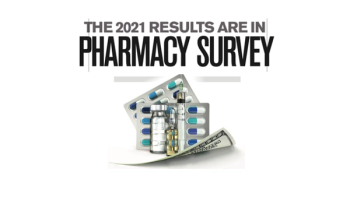
The chief medical officer for Grand Rounds Health and Doctor on Demand says the healthcare industry needs to be committed to creating equitable and inclusive environments.

The chief medical officer for Grand Rounds Health and Doctor on Demand says the healthcare industry needs to be committed to creating equitable and inclusive environments.

In this part three video series, Civica Rx CEO Martin VanTrieste says Civica is launching an outpatient retail market with its first retail drug coming to the market next year.

Understanding medication utilization patterns is important for future evaluations of clinical outcomes, investigators say.

Study published in the Annals of Internal Medicine elaborates on past positive findings for Zynquista (sotagliflozin), a dual inhibitor of SGLT1 and SGLT2.

Editors of MHE and their furry friends had the pleasure of speaking with Dr. Glenn Levine, professor of medicine at Baylor College of Medicine and chief of the cardiology section at Michael E. DeBakey VA Medical Center in Houston. Dr. Levine is also a volunteer medical expert for the American Heart Association’s Healthy Bond for Life initiative and is lead author of the Association’s Scientific Statement on Pet Ownership and Cardiovascular Risk. In the conversation, Dr. Levine shared some wellbeing tips on how our pets can benefit our mental and physical health and wellbeing.

The American Heart Association statement says people with resistant or poorly control hypertension, pulmonary hypertension and recurrent atrial fibrillation should be screened for obstructive sleep apnea. Although enthusiastic about the future of wearables and other kinds of technology for diagnosing obstructive sleep apnea, the statement also notes that "diagnostic accuracy needs to be better defined."

A longstanding four times per day testing requirement will cease, and patients using inhaled insulin now qualify for continuous glucose monitoring.

Results run counter to common beliefs about the effects of self-selection into voluntary value-based payment programs.

Civica Rx CEO Martin VanTrieste says Civica’s members are experiencing fewer shortages because of strategies used by the company.

A new indication, a nonprescription switch, a recall, and new guidances round out this week’s FDA news.

Civica Rx is using long-term contracts and payment on delivery as a way to keep manufacturers in the market, Civica Rx CEO and president Martin VanTrieste said in an interview with MHE.

Regardless of political affiliation, the public supports congressional action to allow the federal government to negotiate prices.

Glaucoma affects many people across the globe, but primarily, it's affecting African Americans due to access.

Emphasis must be put on technology strategies that ensure greater integration and interoperability of solutions, such as EHRs, imaging platforms and clinical diagnostic decision-making support tools, so that hospitals can effectively meet value-based care objectives while improving their own financial health.

The therapy is a modified poliovirus vaccine that not only kills cancer cells but also can trigger long-term immune memory.

The Supreme Court’s dismissal of the latest challenge means patients will have access to lower-cost therapies, an advocacy group says.

In this final part of the MHE 2021 Pharmacy Survey, participants share their thoughts on which federal policies they favor as a way to curb drug prices and which policy is more likely to occur this year. MHE's annual pharmacy survey had over 225 respondents.

The nation's highest court has upheld the ACA three times.

The COX-2 inhibitor Anjeso, a faster-acting injectable formulation of meloxicam, reduces opioid use after surgery.

Provider frustration with authorization processes continues, but there are solutions for evidence-based, easy-to-navigate and complete approvals

Briana Contreras, associate editor of Managed Healthcare Executive, spoke with Mark Poling, chief product officer of Zipari, a health insurance tech organization, about how a direct-to-consumer model can simplify the enrollment process. He also shared the benefits the model has to health insurance systems’ operations.

In this part five series, participants give their opinions on which drugs newer to the market in the last 12 months hold the most promise to reducing morbidity and mortality. Participants also shared which drug in the pipeline holds the most promise. MHE's annual pharmacy survey had over 225 respondents. We will be posting the results over the next few days.

Chances of left ventricular ejection fraction almost disappeared when patient took the ACE-inhibitor lisinopril during treatment with trastuzumab/anthracycline, according to research presented at ASCO.

Former OptumRx executive, Gina Guinasso, J.D., is president of the newly named retail venture.

Immune-related AEs can occur one to two years after treatment, are more common in combination treatments, and can be difficult to manage.

Predictions that the company would make a major move to dominate American healthcare have not come to pass. So far.

The Alzheimer's Association praises the approval but not the price tag. A Harvard Medical School professor who resigned from an FDA advisory committee says the OK "was probably the worst approval decision in recent U.S. history" in his resignation letter.

In this part four series, participants give their opinions on the biggest driver of specialty drug expenditures this year and what the most significant change in contracts between plan sponsors and PBMs could be in the near future. MHE's annual pharmacy survey had over 225 respondents. We will be posting the results over the next few days.

Nurtec ODT is the first oral CGRP antagonist approved for migraine prevention, says its maker, Biohaven.

According to the CDC, use of any contraception has remained stable in the United States. From 2015 to 2017, approximately 2 out of 3 girls and women ages 15 to 49 used some form of contraception,and a similar proportion did so from 2017 to 2019.